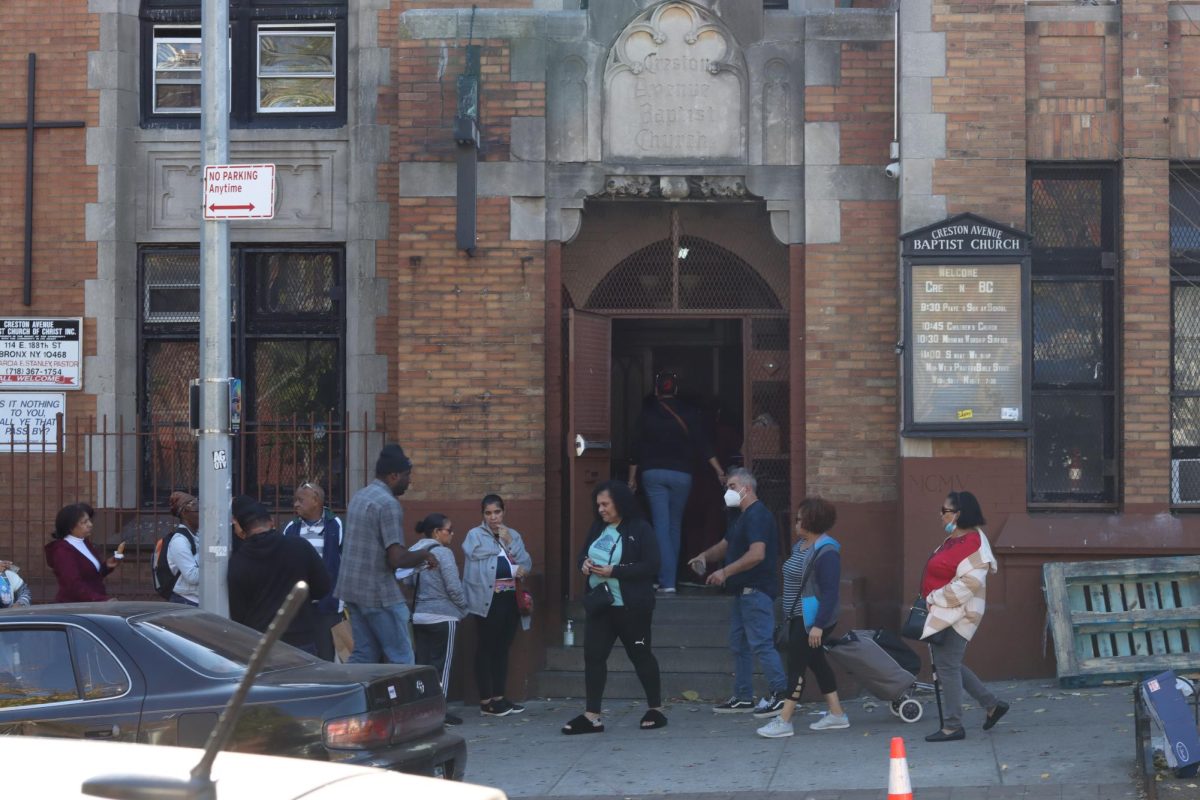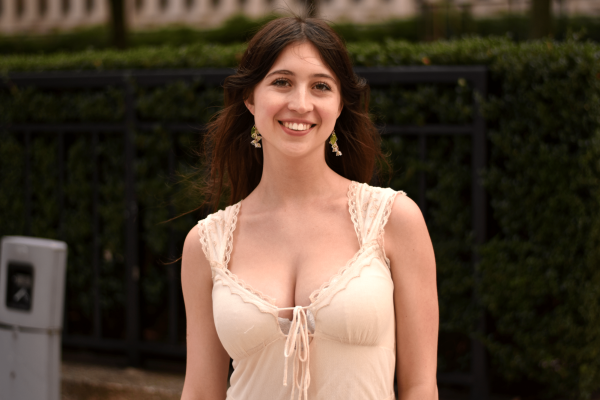Fordham Campus Ministry is hosting its annual Thanksgiving food drive, open from the end of October to the end of November.
The drive operates in tandem with primarily faith-based nonprofits with which Fordham has a sustained partnership. At Fordham College at Lincoln Center (FCLC), Fordham works with the church of St. Paul the Apostle’s Loaves & Fishes Food Pantry and Xavier Mission. At Fordham College at Rose Hill, the drive is partnered with the Church of our Lady of Mercy, Part of the Solution, and Creston Avenue Baptists Soup Kitchen. The Westchester campus collaborates with the Carver Center.
Although there have been multiple campus food drives by various departments and organizations over the years, the Director of Campus Ministry Operations, Budget, and Community Engagement Gil Severiano said that Campus Ministry’s has been going on for at least 10 years.
The food drive accepts monetary donations to help the nonprofits operate more effectively.
“They’re able to cook a meal in bulk for hundreds of people — having the money to buy the items at a reduced rate in bulk goes a lot further than mismatched canned food items might go,” Erin Hoffman, director of Campus Ministry at FCLC, said.
This also allows organizations to purchase fresh turkeys and produce rather than processed foods.
Hoffman also said that it is important to remember those in need throughout the entire year.
“Many populations struggle with food related high blood pressure or obesity so we provide monetary donations for community partners to distribute fresh healthy foods,” Severiano wrote.
Hoffman also said that it is important to remember those in need throughout the entire year.
“These needs don’t just come and go in November and December. But it is a time when people are more open to giving,” Hoffman said.
In terms of how the organizations use the money, Campus Ministry does not stipulate which initiative the money must be used for, or when.
“We tell them the donation was made from our food drive for their Thanksgiving distributions (but they decide how they will use the money). They know the members of their communities, and what is culturally appropriate food to provide for them,” Severiano wrote in an email.
The majority of their visitors receive public assistance, so the pantry takes place on Saturday in the third week of each month to relieve costs in-between when assistance comes in.
Severiano said that while donations have remained steady, the cost of living increases every year.
Gabriella Sacci Adickes, president of the St. Vincent de Paul Conference at St. Paul’s, said her church accounts for this fact.
“With the costs rising and the people who need help rising, we’re very very grateful. You have no idea, because we never want to turn away anyone for lack of having anything to give them,” Adickes said.
Adickes said that before the pandemic St. Paul’s served roughly 85 families a month. Now, they serve around 250 families a month on average.
The majority of their visitors receive public assistance, so the pantry takes place on Saturday in the third week of each month to relieve costs in-between when assistance comes in.
“We want to leave people greater than we found them … We’ve been called the friendliest food pantry in New York City. I think there’s a lot to be done to destigmatize the whole process.” Gabriella Sacci Adickes, President of the St. Vincent de Paul Conference at St. Paul Church
“It’s an outreach to the neighborhood to bridge the gap between what our visitors are able to afford, and what they need to provide for their families … A lot of people are having difficulty making ends meet, and these are honest, working people,” Adickes said.
St. Paul’s works with the Food Bank of New York City to create balanced bags of groceries. Adickes said St. Paul’s did have a recent diminishment in their grant money, so partners like Fordham are all the more important.
“We want to leave people greater than we found them … We’ve been called the friendliest food pantry in New York City. I think there’s a lot to be done to destigmatize the whole process,” Adickes said.
One of the greatest success stories of the food pantry in Adickes’s opinion was a family of Nigerian immigrants. The family was living in a shelter pre-pandemic and began to regularly attend the food pantry after they saw the line. St. Paul’s was able to provide the family with groceries, clothing and specialized food items for an ill family member.
Xavier Mission started 41 years ago as a grassroots organization from the parish themselves and has since grown into multiple programs.
Adickes said with pride that the family is now on their feet and the son of the family is successfully pursuing his education.
“We’ve mentored him for the last five years of his life into a scholarship at one of the best boys Catholic schools in the city, and he’s thriving, and they’re in their own apartment,” Adickes said.
Adickes encourages anyone to get involved with volunteering.
“It feels so good to do something. You could look at it as being like a drop in a bucket, but it’s something,” Adickes said.
Xavier Mission started 41 years ago as a grassroots organization from the parish themselves and has since grown into multiple programs. They offer a customer-choice food pantry in a shopping-style environment, as well as a clothing room providing casual clothing, business attire for interviews and toiletries. They have served over 1,800 guests and distributed 60,000 pounds of clothing.
The mission also offers financial assistance to families under threats of eviction, and the Life-Skills Training and Empowerment Program. This is an educational program in operation since 1995 that provides mentoring, trauma-informed group support, life-skills training and support to homeless individuals and veterans.
Paige Finley, FCLC ’25, has been an active supporter and volunteer for Xavier Mission throughout her time at Fordham. She was introduced to them in the first semester of her first year while on a trip with a Fordham group.
“I just decided to go back on my own because I had such a great experience, and I’ve been going ever since,” Finley said.
She spends most of her time with Xavier Mission volunteering at their Welcome Table soup kitchen, which is open from 1-3 p.m. on Sunday afternoons and Thanksgiving day. They usually serve anywhere from 900 to 1,500 meals every Sunday.
“It’s nice where somebody gives you food, but it’s more important where you use the food as a vehicle to connect to their humanity.” Rob Parmach, Director of the Ignatian Mission and professor of philosophy at FCLC
“It’s a real restaurant experience. The guests come and sit down, they’re allowed seconds and can stay as long as they want to stay,” Finley said.
Rob Parmach, director of the Ignatian Mission and professor of philosophy at FCLC, teaches a community engaged learning philosophy and ethics course. The course has two community partners, one of which is Xavier Mission.
“Last Sunday, I took all 35 students and I went to work at their Welcome Table and we served food for 1,000 people,” Parmach said.
Parmach said that connecting with people goes beyond distributing meals.
“It’s nice where somebody gives you food, but it’s more important where you use the food as a vehicle to connect to their humanity,” Parmach said.
Campus Ministry also collaborates with Fordham’s dining services to conduct the Swipe out Hunger program, which allows students with meal plans to donate food swipes to students experiencing food insecurity.
“This way lost meals don’t go to waste, and you’d be surprised sometimes that someone just needs a few meals to get them across the finish line,” Parmach said.
For the food drive, with rising costs of living and numbers of people in need, Severiano said that donations are more important than ever.
“We are grateful, as are our community partners, for every single donation. Many small gifts make a huge impact!” Severiano wrote.
Local nonprofits said that everyone can get involved with their communities.



